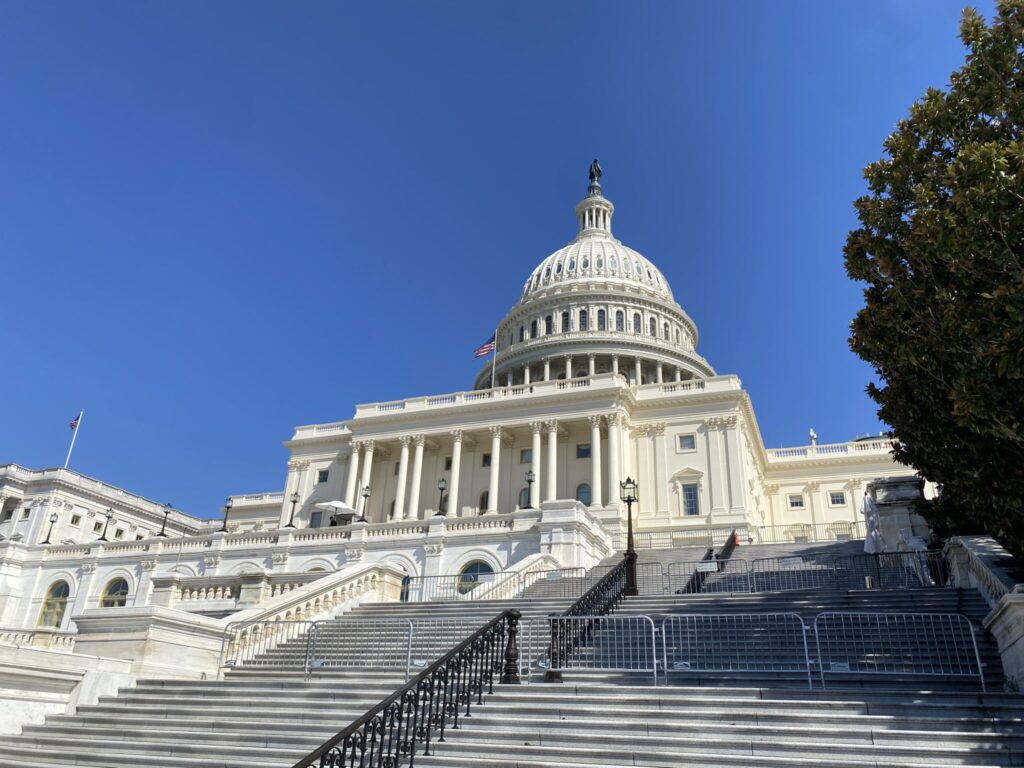WASHINGTON – The U.S. Senate held a major bipartisan vote early Saturday to approve a $1.2 trillion spending package, which President Joe Biden signed into law despite missing the midnight deadline. We have sent a bill asking for this.
The 74-24 vote ends the fiscal year 2024 government funding process that began Oct. 1, leaving lawmakers just about six months behind schedule. Congress passed six other bills in mid-March after relying on short-term spending measures to fill the gap. Montana's two senators split their votes, with Jon Tester supporting the bill and Steve Daines voting against it.
Senate approval took place just after 2 a.m. Saturday, creating a small funding gap that was not expected to have any substantive impact. Biden was expected to sign the bill later Saturday.
Senate Appropriations Chairman Patty Murray, D-Wash., said Friday, hours before the vote, that the deal means “Congress can still function, but it means we come to the negotiating table in good faith and don't let politics get the better of us.” “It is limited to cases where it is placed in front of the gate,” he said.
“This is not a package that I could have written alone,” Murray said. “But by working together, we were finally able to finalize an agreement on a funding bill that protects and even strengthens critical investments in our families, our economy, and our national security.”
Sen. Susan Collins, R-Maine, ranking member of the Appropriations Committee, said the policy “supports America's working families while simultaneously making our borders better secure and flooding communities with fentanyl.” “It provides funding to fight transnational criminal organizations.”
“As part of our efforts to address the border crisis – and it is a crisis – this package includes funding for additional detention beds and additional Border Patrol agents and port of entry officers,” Collins said. he said.
“These are long-standing Republican priorities. It's a priority that many Democrats also share,” Collins added.
Amendment rejected
The Senate's vote to approve the 1,012-page spending package follows a number of changes to the budget proposed by Republicans, including Mike Lee of Utah, Rand Paul of Kentucky and Eric Schmidt of Missouri. This follows the rejection of the proposal by MPs. If either had passed, the massive bill would have to return to the House for another vote and the funding expiration would have been extended.
The U.S. House of Representatives approved the bill Friday morning by a vote of 286-134. Both chambers are currently on a two-week recess from the National Diet Building.
The package includes funding for critical federal programs, including the departments of Defense, Education, Health and Human Services, Homeland Security, Labor, State, and Treasury.
It also includes spending for dozens of smaller organizations, including Congress, the executive branch, the judiciary and the Social Security Administration.
Three of the spending bills include appropriations by lawmakers, commonly referred to as community project funds or Congressional-directed spending.
The 17-page schedule for the Financial Services and General Government bill can be found here, the 18-page schedule for the Homeland Security bill can be found here, and the 103-page funded projects for the Labor, Health, and Education bill can be found here.
Additional reporting from States Newsroom on these six government funding bills can be found here. Details on his six other spending bills announced earlier this month can be found here. You can read about the House vote here and the previous Senate vote here.


